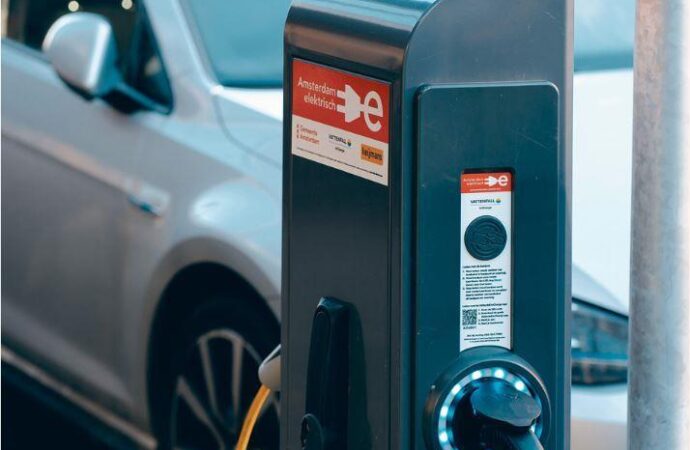Politicians may have taken a wrong turn in the drive away from petrol and diesel VOLVO has published a study that shows the manufacture of electric vehicles (EVs) creates seventy per cent more emissions than conventional internal combustion engines (ICEs).
Those working in the automotive industry, especially at an engineering and university level, know that the production of EVs creates more pollution than the production of conventional cars.
Contrary to what some people think, conventional and electric vehicles are built in the same plants, using the same materials and components, the only difference being the engine. The Volvo XC40 with conventional engine and the Volvo C40 with electric engine for instance are basically the same car, only that the production of the latter causes a lot more pollution, seventy per cent more to be precise.
The chemicals and minerals used in manufacture and supply chain do not sit on top of the ground waiting to be scooped up or picked off trees. The whole process of accessing
them involves huge earth works, so deep in the ground they can be seen from high altitude.
It also takes vast numbers of heavy plant and equipment, which are powered by fossil fuels and spew out tonnes of nitrous oxide.
Once chemicals and minerals are extracted, they are then transported by vehicles on road, rail or sea to countries with production capabilities, to be processed further into EV batteries. This takes a huge amount of energy and creates huge amounts of pollution as well as toxic waste, which in most cases is dumped.
All this information has to be accounted for in the manufacture of batteries and EVs. You cannot dismiss the effects of the production and transport processes, which should be calculated as a total against that of conventional manufacture.
To properly assess the costs and benefits of ICEs and EVs, both their manufacture and lifetime need to be taken into consideration. I was glad to hear a politician saying that “maybe we didn’t give these very low emission diesel cars a chance before we stopped them.”
What chemicals and minerals are required to produce an EV battery? How much stock of chemicals and minerals is still in the ground and how long will it last? What equipment is required to dig these out of the ground and how much pollution is made by manufacture of the equipment? What pollution and waste are they creating in digging them out of the ground or transporting them to countries like China?
There is a simple equation – it takes pollution for the creation of vehicles which are in turn polluting the Earth; but how much pollution do we consider safe? Also remember, an ICE engine is mainly made of aluminium and most of the components are recycled and reused. However, there is no recycling of EV batteries. Indeed it is the biggest headache for all countries. Like asbestos, it could turn out to be a very big problem.
EVs remind me of 1950s thinking on nuclear-powered cars: a great idea but a few minor problems… radiation, dealing with car crashes, clearing up waste and recycling. Leap forward 70 years on and is it much different? The future is likely hydrogen engines rather than EVs. If we switched all cars over to electric in the next year, we could not provide the power required to charge them up.
The UK does not have enough power stations to produce enough electricity, and warnings have been given on the forthcoming price increases from utility companies. Chile is powering forklift trucks with hydrogen while we as a nation are still chasing electric, even with up to three nuclear power stations’ short of requirement. So where are we? A UK- based, global manufacturer of ICE vehicles is again in delay of major manufacture of EVs until June 2022, and the plant is nowhere near ready to produce such vehicles. This will only leave 3 years to get everything in place, both at a production and supply level, for the UK’s 2025 deadline.
There is a major problem with the supply of computing chips and EV batteries, which is causing loss of production and a big knock on to the suppliers in the chain. It is interesting that Johnson
Matthey pulled the plug, so to speak, on battery production. Besides, the Chinese have capitalised the market and some of the main minerals are running low.
At this point it is worth stating what I was told about shipping and the supply chain. In one American port there are usually only two container ships waiting to be offloaded at any point in time, and now there are 55.
Also, the price of a shipping container has gone from £2,500 to £11,500 and the more you pay the less to delay. Who is going to pick up the extra cost?
As for Europe and fossil fuel cars, it is amazing how all the high end performance manufacturers – Ferrari, Lamborghini, Maserati, BMW, etc. – are asking the EU for concessions, allowing them to still build ICE cars. They know that the batteries are a waste of time and that only petrol or diesel will achieve high performance and long distance. As told to me, a woman was looking at buying a new car and was keen on buying an EV but wanted to test one out. The car dealer gave her a fully charged EV Mercedes to try for the weekend. The woman and her daughter were very happy and looked forward to it. The car was driven not far from the dealership to home and the next day from home to town and back home. They noticed that the car had a near-empty charge and the gauge showed just one per cent. They could not drive the car back to the dealership, so the dealership sent a recovery vehicle to collect it from the customer’s driveway. The total drive distance was no more than 56 miles, so she has opted for a hybrid engine vehicle. Smart woman in my book.
So is it ‘Back to the Future’ or ‘Back to the Past’? Letting politicians loose on engineering was like watching a monkey crack a nut with a hard rock, a lump of wood and plenty of head- scratching. But do not worry, Boris has it fully under control living in Peppa Pig world, driving a Peppa Pig EV. Oink Oink!
Lord help us.
by GEORGE PATRICK













Leave a Comment
Your email address will not be published. Required fields are marked with *